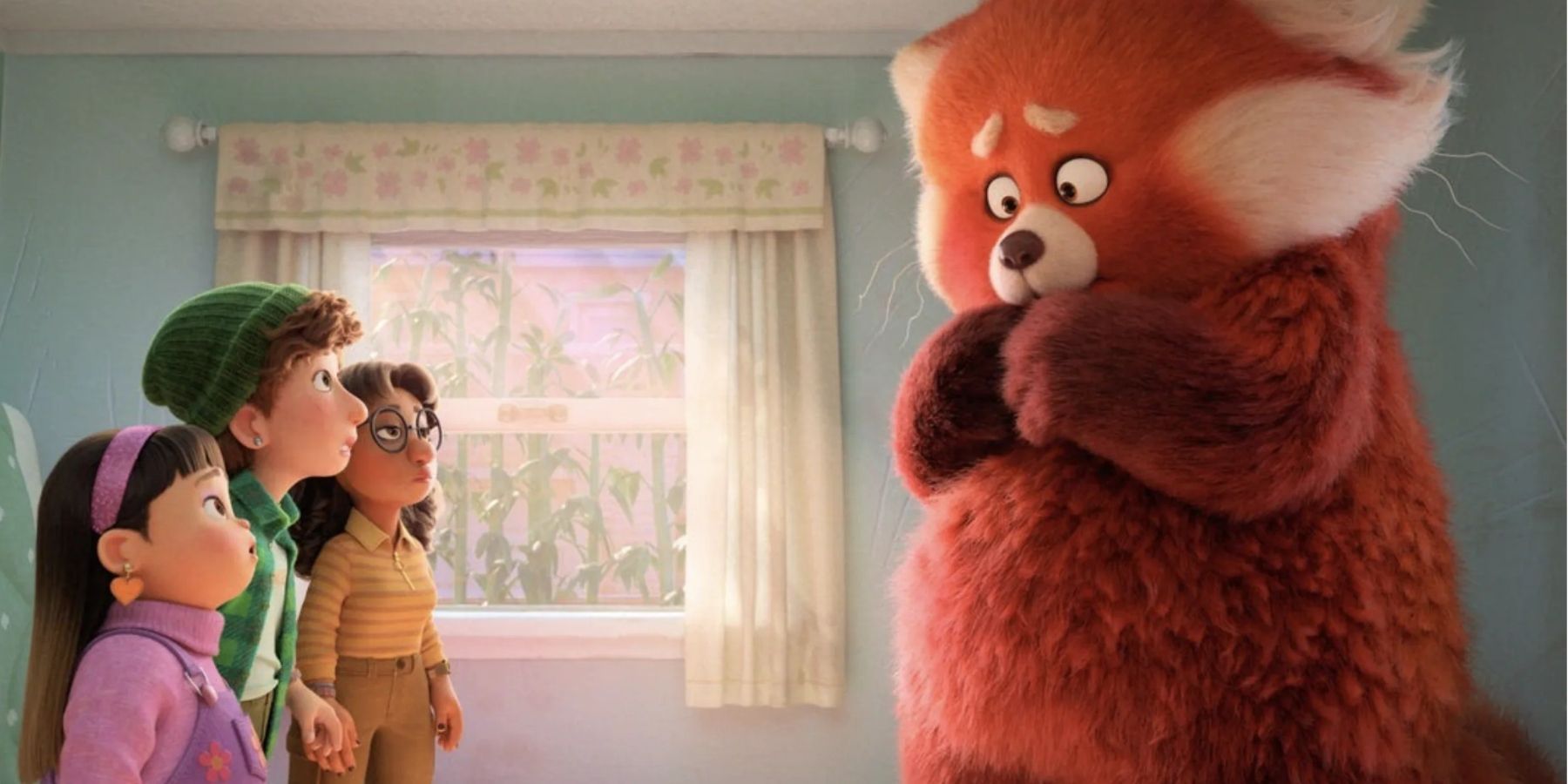Released exclusively to streaming service Disney Plus, Turning Red is the latest film to come from Pixar. A simple coming-of-age story about an Asian-Canadian girl living in Toronto in the early 2000s, dealing with a myriad of issues. Not the least of which, is that she suddenly has an affliction where she uncontrollably turns into a giant red panda when she isn't able to stay calm.
The film seems innocent enough, and it is, but of course, it still managed to garner some controversy. Some criticized the frank discussions about menstruation and period products, stating that those topics took away from the film's ability to be family-friendly. The main critique of the movie though revolved around its relatability. Because the main character, Mei Lee, is of a very specific culture, location, and time period, some critics and viewers found that Turning Red lacked universal appeal.
In reality, the specificity is found only on a surface level. Yes, the character is a girl with a specific culture in a specific city in a specific time period. But so are pretty much all the other characters in Disney and Pixar films. Looking at the key themes of Turning Red and how the story progresses, there are actually a lot of universally appealing aspects.
While the conversation around periods and the red panda possibly being a metaphor for starting menstruation was generally agreed upon to be family-friendly in the end, it is a point of contention for people who can't relate to that aspect of life. So is Turning Red only for people who menstruate? The answer is no. Looking past the surface-level storyline of a girl getting her period for the first time is a story of puberty itself. That is an aspect of life that absolutely everyone goes through. Bodily changes, hormones, and crushes for the first time. Those are all things present in Turning Red that everyone should be able to relate to.
Another major theme at play here is the importance of family, and how it feels to deal with pressure from parents and other family members to be something you're not. While in the film Mei Lee deals with this from her mother specifically, and much of it also relates to her Asian culture, this theme is still something that's extremely relatable. While it's not something that absolutely everyone goes through, it certainly affects a lot of people. At some time or another, everyone will feel the desire to do something that goes against their family's wishes, and they will worry about disappointing their parents. In Turning Red, this manifests in Mei Lee's love for the boy band 4*TOWN and the friends she hangs out with. For others, this could manifest in many ways.
Turning Red is also so much about the power of friendship, and how important a good group of friends is. This is of course important when one is 13 like Mei Lee, but it's important in adulthood too. In the film, Mei's friends are the only people she can truly be herself around. They are the people she loves most in the entire world, and are who she thinks of to calm herself down and control the red panda inside her. This will ring true for everyone, and not only bring up nostalgia for friends from childhood but also remind viewers to appreciate the friends that they have now.
Mei Lee is officially classed as "Asian-Canadian", however, her culture seems to reflect someone of primarily Chinese descent. It's also stated that she explicitly lives in Toronto and that it's 2002. For some reason, many have found that these specific facts make the film unrelatable. This is honestly a really strange criticism, solely for the reason that it's not given to other Disney or Pixar films. Looking at a recent example in Luca, that story is about a young boy who is a sea creature in the Italian Riviera. Luca did not receive criticisms for being hard to relate to, and neither did movies like Onward, Coco, or Cars. These films are all set in different countries or worlds, with characters that are far from "universal". What's the difference with Turning Red?
Of course, being of Mei Lee's culture and time period, being someone who menstruates, and being from Toronto, might enhance the experience of watching Turning Red. However, these are still extremely universal themes that should be appreciated by everyone. When watching a movie and trying to find something to relate to, it's important to go past the surface level. Don't base its relatability on what the main character looks like or where they live or even the explicit plot of the film. Look into the themes, and the message. Figure out what the film is trying to say at its core, and more often than not there will be something there.



